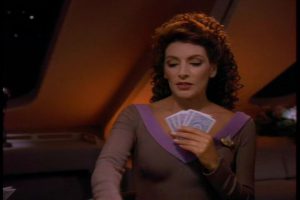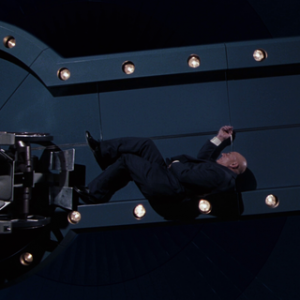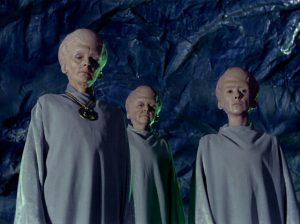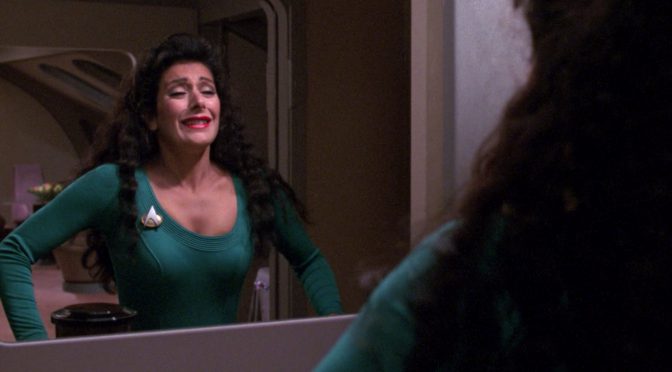Throughout speculative fiction of all genres, be it fantasy or sci-fi, we have certain tropes that are universal. There’s generally an ancient forgotten civilization, a more war-like race, some benevolent watcher species, and a species or individual with some sort of supernatural power. These supernatural powers have a variety of manifestations and uses, but some of the most common across all genres are powers of the mind. The ability to hypnotize, read minds, or see into the future are in almost all branches of these genres and will likely be there until the future they claimed to see finally comes to pass.

And why wouldn’t they be? The concept is fascinating on so many levels. We’ve even tried to see if it was possible in the real world, and found that it probably wasn’t (at least on this world). People still insist that they can do it though, often using cold reading techniques and research to try to fake the talent, and continue to keep the ability right on our collective minds. For every story where someone claims to be able to speak to the dead there are at least a dozen or so real world people who are claiming to do exactly that. And as a result these concepts are an inexorable part of our culture and will be for some time to come (maybe even forever).
But on a writing level, there are problems presented with such powers, problems which often result in a whole other set of tropes that are used as a compromise. It wouldn’t take very much effort to find episodes of shows where the psychic cast member has somehow been stripped of their powers or are somehow nullified. The entire point of Minority Report, both the movie and the original story, was whether or not these perceptions should be trusted. And almost every one of the X-Men movies has found a way to completely remove Professor X’s powers from the equation.

So the question becomes: why do creators who give these characters powers feel compelled to get rid of them at the same time?
Psychic Plotholes

Looking into the various fictional worlds we come up with, the idea of mental powers inevitably comes to play because it’s just so much a part of our culture. It’s almost a natural reflex for most people, the idea that someone, somewhere, would be able to read your mind in one way or another. Either they’re an advanced mutation of humanity, or an alien crossbreed, or it’s a cyberpunk dystopia and they simply have l33t hacker skills. But by whatever method they happen to have, there’s a better than average chance they’ll be stripped of that power somewhere along the way.
Deanna Troi of Star Trek: The Next Generation was actually incredibly prone to this. Over the years she completely lost her abilities, discovered (for the first season) she couldn’t read any Ferengi because they had the wrong kind of brain, and she frequently became the target of psychic attacks. Deanna’s powers were generally shut down whenever possible, if not completely used against her, and for a long time the character was seen as somewhat useless. In one episode she was even driven to a coma-like state by the constant repetition of the sound of a music box. In another, she was stripped of her powers completely because she was overwhelmed by two dimensional lifeforms.

One would get the impression that they didn’t want her involved in the show at all… and one would be right.
Early on in the show’s production, the team was considering writing her out of the show completely for lack of proper use and the challenges involved in writing around her. Though kept around for “eye candy” for the show’s run under Roddenberry (the man wasn’t perfect), her powers presented unique problems that had to constantly be worked around. How do you go about writing a mystery when a person can read the people around her? How do you present the difficulties of communicating with other lifeforms if someone can read their minds? How do you keep Deanna from spoiling the ending of every episode she’s involved in? And the answer was to limit her abilities (making her only an empath instead of a telepath) and sometimes out-right putting her to the curb when even that wouldn’t be enough.
The truth is, while everyone wants to write someone with mental powers, they rarely stop to consider just how difficult it is to write around these characters. More often than not you encounter situations where the powers would resolve a conflict long before the planned climax because they can see things no one else can. This sixth sense, whichever version you give them, is able to look beyond the conventional obfuscations we use to keep an audience clueless and makes the “mystery” into something that should have been solved much earlier. And once we realize this, we also realize that the audience is likely to catch on too. Worse, sometimes you’re obligated to have a character in the story that you know wouldn’t work for the scenario you’ve written…and that’s when you have to make that character look stupid.

This isn’t to say it’s actually impossible, many stories have made use of characters with these powers, but it does require you to go in with a solid plan of action. Mysteries and surprises have to be buried a little deeper, or be prevented from having direct proximity to the psychic. And, for that matter, there should be limits to those abilities. It’s a lot easier to deal with a situation where your psychic happens to be only an empath rather than someone who can literally read the whole planet using their big metal sphere. It may feel like nerfing their abilities ahead of time is a little cheap, but establishing firm rules from the start will keep you from doing something silly like having the strongest telepath in the world not recognize his house has been invaded.

Alternatively, another approach that has done well in he past is the Oracle method. Like the Oracles of mythology, maybe the information is readily available to the psychic themselves, but difficult to be given to others. Despite mentioning it earlier, it must be noted that this worked well for Minority Report, where the future seeing Precogs saw everything exactly as it happened but required interpretation by non-psychics to make it work through a system that could be manipulated. As a result, rather than the Precogs themselves being nullified or powerless, the conflict came in whether or not everyone else was actually understanding the situation. Furthermore, the very themes of that story relied on philosophical questions that were more interesting so long as the Precogs were accurate. Had they been wrong or removed from the equation it wouldn’t have been the same story anymore.
But, by putting that light buffer between the powers of the Precogs and what everyone else did with that information, the story could have its cake and eat it too. (Though I never watched the show to see if they got it right over there). In both of these cases, whether limiting the character or the people they interact with, you will generally resolve the plot holes presented by dealing with omniscient powers while still allowing those fascinating abilities to exist. However, if neither of these work for you, there is still another method – make the psychic work against your protagonists.

Though the cliche of making this exceptional person the “bad guy” is also worrisome, one of the benefits of putting the psychic on the other side is that it makes their powers an obstacle to overcome for the characters rather than the writer. If these characters are so powerful, capable of resolving so many situations, and difficult to trick – that flips the problem right on its head. Instead of having a hard time creating conflict around these people, it’d be hard not to make conflict around them. And, the fact is, it would make for moments that could hardly be duplicated elsewhere. After all, if you’re afraid of being found by your enemies, it’s worse when that enemy can actually feel your fear.
In the end, that’s the real issue, making it so that the psychic ability doesn’t actually interfere with your sense of tension or conflict. Though these are only a few suggestions, it’s something worth considering. A powerful mind done well is a great benefit to the world of your story, while done poorly will only leave plot holes and a need to sweep such a character under the rug. And that would be a shame, because when done well and when taken to its full potential…
There are so many fantastic ways to play with someone’s head.
(I write novels and have a twitter account. Both of these give the closest insight to my mind you can get… unless you know what I’m thinking right now)








good article, I think the same